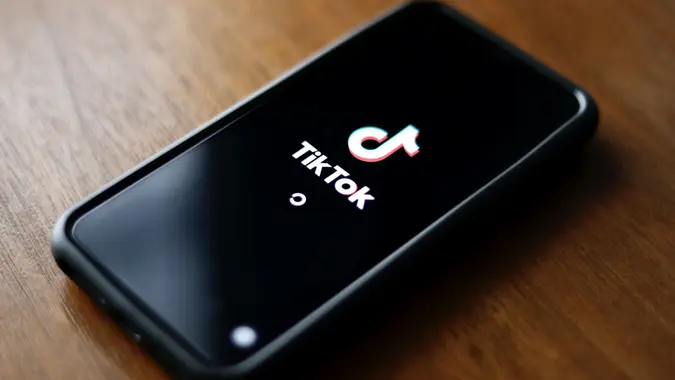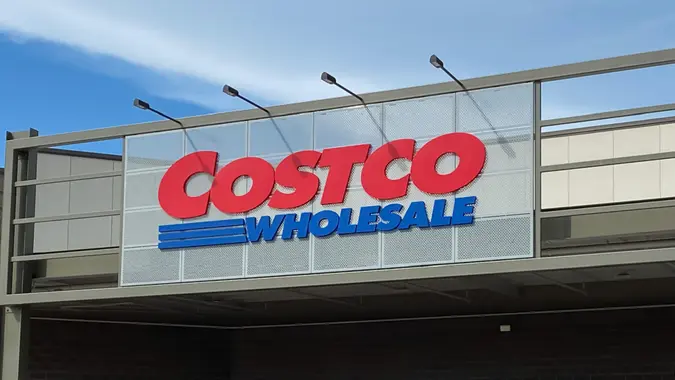HSA vs. PPO: What Are They, and Are They Right for You?

Commitment to Our Readers
GOBankingRates' editorial team is committed to bringing you unbiased reviews and information. We use data-driven methodologies to evaluate financial products and services - our reviews and ratings are not influenced by advertisers. You can read more about our editorial guidelines and our products and services review methodology.

20 Years
Helping You Live Richer

Reviewed
by Experts

Trusted by
Millions of Readers
When it comes to choosing a health insurance, the many options can be downright confusing. You’ll likely encounter HSA and PPO, as well as HDHP. Here’s a breakdown on these mean and who might benefit from them.
Read: What To Do if You Owe Back Taxes to the IRS
Key Takeaways
- An HSA is a tax-advantaged savings account designed to be used with a high-deductible health plan for paying medical expenses.
- A PPO offers flexibility in choosing healthcare providers and doesn’t require a referral to see specialists.
- HSAs have a rollover feature allowing unused funds to accumulate year over year.
- PPOs generally have higher premiums but offer broader access to doctors and services.
- Choosing between a healthcare plan with an HSA and PPO depends on your healthcare needs, what you’re willing to pay and your preference for provider flexibility.
What Is HSA?
A Health Savings Account is a tax-advantaged savings account that pairs with a high-deductible health plan. The idea is simple: you save money in an HSA tax-free, and then you can use those funds to cover eligible medical expenses, also tax-free. This setup encourages savings while providing a safety net for healthcare costs.
Important Points To Know About HSAs:
- Tax advantages: Contributions are tax-deductible, earnings grow tax-free and withdrawals for qualified medical expenses are also tax-free.
- Rollover feature: Unused funds in an HSA roll over year to year, allowing you to build a nest egg for future healthcare expenses or even retirement.
- Ownership and portability: The account is yours, regardless of employment status.
- High deductible requirement: You must be enrolled in a HDHP to contribute to an HSA, which means you’ll have higher out-of-pocket costs until the deductible is met.
- Complexity: Managing an HSA requires keeping track of contributions, distributions and eligible expenses.
Those with lower medical expenses, individuals looking for tax savings, or anyone comfortable with a higher deductible in exchange for lower premiums and the ability to save for future healthcare costs.
Remember, an HSA isn’t a health insurance plan like a PPO. To qualify for an HSA, you must be enrolled in an eligible HDHP, such as a PPO, without any other health coverage. HSAs can also can be paired with other types of health insurance plans, such as an HMO or POS plan, provided these meet the high deductible criteria. This offers a versatile way to save for healthcare expenses while enjoying the benefits.
What Do HSAs Usually Cover?
Typically, HSAs can be used to cover a wide range of medical costs not always fully covered by insurance plans. These expenses include, but are not limited to, deductibles, copayments and coinsurance for medical services. Additionally, HSAs can pay for prescriptions, dental care, vision care and other qualified medical expenses as defined by the IRS.
Interestingly, HSAs cover some expenses that traditional health insurance might not, such as over-the-counter medications (with a doctor’s prescription) and certain medical equipment. It’s also possible to use HSA funds for preventive care services.
The flexibility of an HSA makes it a powerful tool for healthcare planning, allowing you to use pre-tax dollars. However, it’s important to review the IRS guidelines or consult with a financial advisor to ensure your expenses are qualified.
What Is HDHP?
A High Deductible Health Plan is a health insurance plan that has a higher deductible than typical health plans but offers lower monthly premiums. To be HSA-eligible, you must be enrolled in an HDHP. The idea is to pay less for insurance coverage upfront (through premiums) but more out-of-pocket before the insurance kicks in.
What Is PPO?
A Preferred Provider Organization is a type of health insurance plan that offers more flexibility when choosing healthcare providers. You have the freedom to see any doctor or specialist without needing a referral. It offers a network of preferred providers, which means you can get care at a lower cost if you choose providers within the network, but you also have the flexibility to see out-of-network doctors at a higher cost.
A PPO offers health coverage without investment account features of an HSA, focusing solely on providing access to healthcare services.
A Quick Guide to PPO Plans
- Flexibility: You can see any doctor or specialist without needing a referral.
- Coverage: PPOs often provide better coverage for a wider range of services, including specialists and out-of-network care, albeit at a higher cost.
- Convenience: Less paperwork and no need to coordinate through a primary care physician.
- Higher costs: Premiums and co-pays are generally higher than plans like HDHPs.
- Out-of-network charges: While you have the flexibility to see out-of-network providers, doing so will cost significantly more.
Those who frequently need specialized care, want more flexibility in choosing providers or are willing to pay higher premiums for broader immediate coverage.
Opting for a PPO means valuing immediate, broad access to healthcare over potential savings on premiums and tax advantages.
HSA vs. PPO: Making the Choice
Choosing between an HDHP with an HSA and a PPO depends greatly on your health status, financial capacity and anticipated healthcare needs.
An HDHP paired with an HSA might be the ideal choice for individuals who are generally healthy and have minimal healthcare needs throughout the year. This option offers the benefit of lower premiums, allowing for savings that can be funneled into an HSA to create a financial cushion for future medical expenses or unforeseen healthcare needs. It’s a strategic choice for those able to manage higher out-of-pocket costs upfront, including meeting deductibles in case of emergency care.
On the other hand, a PPO may be more suitable for those who anticipate needing frequent medical care or have ongoing health conditions requiring regular medication or treatments. The typically lower deductibles of PPO plans make it easier to access a wide range of healthcare services without incurring significant initial out-of-pocket expenses. Plus, the extensive network coverage of PPOs, including the assurance of out-of-network service coverage, provides a safety net for those who travel often or need specialized care not available within the network.
Both HDHPs and PPOs ensure coverage for preventive services at no additional cost when relying on in-network providers, preventative care screenings, immunizations and more. Ultimately, the decision between an HDHP with an HSA and a traditional PPO hinges on balancing your healthcare needs with your financial goals, ensuring that you choose the plan that best supports your well-being and budget.
FAQ
- What is better an HSA or PPO?
- Whether an HSA or a PPO is better depends on your healthcare needs and financial situation. An HSA, paired with a high-deductible health plan, is ideal for those with few medical expenses and prefer to save for future healthcare costs. A PPO offers more flexibility and immediate access to a wider range of providers, suited for those with frequent healthcare needs or who prefer not to manage a high deductible.
- Who benefits most from HSA?
- Individuals who benefit most from an HSA are those with relatively low medical expenses, who seek to save on taxes, and are comfortable with a high-deductible insurance plan. HSAs are ideal for people looking to accumulate savings for future healthcare costs or retirement, offering the advantage of tax-free contributions, growth and withdrawals for qualified medical expenses.
- Do I need an HSA if I have PPO?
- No, you don't need an HSA if you have a PPO. An HSA is specifically designed for use with high-deductible health plans to cover out-of-pocket medical expenses. A PPO plan, offering broader provider access and lower deductibles, doesn't require an HSA. However, you might consider other savings options for healthcare expenses if your PPO plan has higher out-of-pocket costs.
This article was updated to clarify how HSAs work with health insurance plans and PPOs.
Editor's note: This article was produced via automated technology and then fine-tuned and verified for accuracy by a member of GOBankingRates' editorial team.
 Written by
Written by 
























